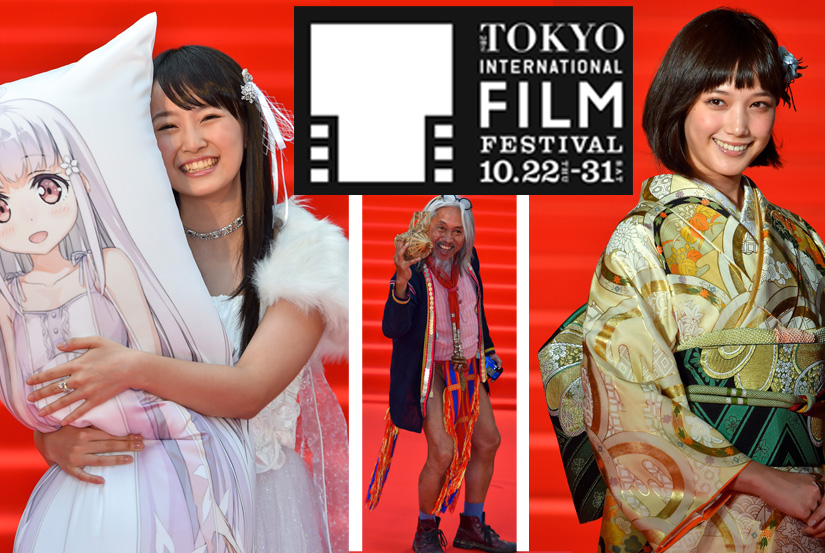
- Festivals
Diversity, Past and Present, Celebrated at the 28th Tokyo International Film Festival
The 28th edition of the annual Tokyo International Film Festival just wrapped leaving a great impression. Boasting a wide selection of over 200 titles from all over the world, in genres as diverse as action, comedy, drama, fantasy and horror, the special focus this year was on animation, mostly on the famous anime and manga versions, which are the most popular animation forms in Japan. The festival opened with The Walk, Robert Zemeckis’ biopic about French high-wire artist Philippe Petit and ended fittingly with a film about a final trip that becomes the starting point of a new journey, The Terminal, directed by Tetsuo Chinohara.
This edition of the festival shone a spotlight on homegrown cinema offering fans of Japanese film a taste of everything. Starting with an all night horror film session, titled Masters of J-Horror (Japanese Horror) featuring the chilling works of the three most influential directors considered to be the original sparks who ignited the highly esteemed and internationally regarded J-Horror boom: Hideo Nakata, Don’t Look Up; Takashi Shimizu, Ju-on which was remade in the U.S as The Grudge; and Kiyoshi Kurosawa’s latest work, Cure.
On the animation front the festival held the special program The World of Gun Dam, screening the entire robot anime series, while three Japanese titles were shown as part of the official competition: veteran director Kowhai Ogre’s Fajita, about the Japanese painter who gained notoriety in 1920s Paris; up and coming helmer Koji Fukadas’s Sayonara, a sci-fi drama about refugees left behind when Japan is evacuated due to radiation after a series of accidents at nuclear power plants; and The Inerasable, by famous hit maker Yoshiro Watanabe – three very different films that highlight the diversity of Japanese cinema today.
The past was celebrated across town, in Ginza, at the Kabukiza Theatre, showcasing the Kabuki performance of Goro in the Rain, and Akira Kurosawa’s adaptation of a kabuki play, They Who Step on the Tiger Tail. Fans of Kurosawa also enjoyed a 4K digital restored version of Ran, the opening film of the first Tokyo Film Festival, in 1985.
Despite the increased emphasis on Japanese cinema, the festival featured films from the wider Asian region in the Asian Future section from which Thailand’s The Island Funeral, a very sensual story with strong political background, took the Best Asian Future Film Award, while the fresh, powerful and unique offer from China, A Simple Goodbye, took The Spirit of Asia Award. The Philippines was the country chosen in this edition for the Crosscut Asia series, which began last year, featuring a special program on celebrated director Brillante Mendoza.
Also special was the celebration of the centennials of two Hollywood legends born in 1915, Ingrid Bergman and Orson Welles. The first one gave us an intimate view of her life by using memoirs and home movies in Ingrid Bergman: In Her Own Words, while The Astonishing Life and Work of Orson Welles, included reflections by friends and admirers of the American auteur. On Halloween night, while Jury President Bryan Singer was closing the festival mentioning the challenges aced in the selection process and the conflict among members of the Jury over entertainment versus director’s achievement, the streets of Tokyo were filling up by the Kawasaki’s Annual Halloween Parade, that included a Star Wars-themed float featuring a giant Star Wars nebuto commemorating the revival of the film franchise. How appropriate to end a week of cinema’s celebration in its widest and most diversified way.
Paz Mata

